Physical Sunscreen vs Chemical Sunscreen: Key Differences & Benefits
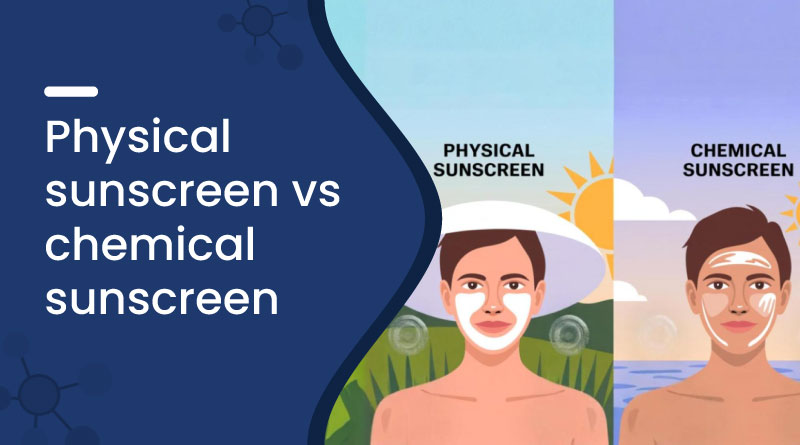

Sunscreen is a vital skincare essential that shields the skin from harmful UV rays, helping prevent sunburn, premature aging, and even skin cancer. They are generally categorized into two types: physical (mineral) and chemical. Both protect the skin differently, and choosing the right one depends on your skin type and lifestyle. In this blog, let’s understand the difference between physical and chemical sunscreens, their benefits, drawbacks, and more.
What Does Sunscreen Do?
Sunscreen is a skincare product designed to protect the skin from the sun’s UVA and UVB rays, which can cause tanning, sunburn, and long-term skin damage. It works either by blocking UV rays before they reach the skin or by absorbing them and preventing damage.
Also read – How to Apply Sunscreen and When to Apply
Types of Sunscreen
There are two main types of sunscreens available:
- Physical Sunscreen (Mineral Sunscreen): Contains minerals like zinc oxide and titanium dioxide, which act as a shield on the skin’s surface to block UV rays.
- Chemical Sunscreen: Contains UV-absorbing compounds such as avobenzone, oxybenzone, and octocrylene that neutralize harmful rays by turning them into heat.
Difference Between Physical and Chemical Sunscreen
Although both serve the same purpose, they differ in composition, function, and suitability for different skin types.
| Feature | Physical Sunscreen | Chemical Sunscreen |
|---|---|---|
| How it works | Reflects and blocks UV rays | Absorbs and neutralizes UV rays |
| Ingredients | Zinc oxide, titanium dioxide | Oxybenzone, avobenzone, octocrylene, etc. |
| Suitability | Great for sensitive skin | Suitable for normal to oily skin |
| Texture | Thick texture and may leave a white cast | Light texture that blends easily |
| Effectiveness | Works instantly after application | Needs 15–20 minutes before sun exposure |
| Durability | Less likely to break down in the sun | May require frequent reapplication |
| Cosmetic finish | Can feel heavier | Feels lighter and more invisible |
Also read – Moisturizer vs Sunscreen: What’s the Difference & Why Both Matter
Benefits and Disadvantages
Physical Sunscreen
- Benefits: Immediate protection after application, gentle on sensitive skin, less likely to clog pores.
- Disadvantages: Can leave a visible white cast, thicker texture, harder to blend.
Chemical Sunscreen
- Benefits: Lightweight and easy to spread, blends seamlessly with skin tone, better for water or sweat resistance.
- Disadvantages: Can irritate sensitive skin, requires time to become effective, may need frequent reapplication.
Which Sunscreen is Better?
There is no single answer, as both have unique advantages. Physical sunscreen works well for sensitive, acne-prone, or easily irritated skin. On the other hand, chemical sunscreen works well for those who prefer a lighter texture and want easy application without a white cast.
Sunscreens Available at Zeelab
At Zeelab, you can find high-quality sunscreens at affordable prices. They are dermatologically tested, effective, and budget-friendly, ensuring you get the best sun protection without overspending.
VinSun Sun Screen Lotion SPF 50+
A powerful sunscreen designed to protect delicate skin from harsh sun damage. Its advanced formula provides broad-spectrum protection, making it ideal for daily outdoor use.
- Guards delicate skin against damage caused by sun exposure
- Provides high-level protection from harmful UV rays
- Suitable for all skin types
Sunscreen Lotion SPF 30+
A lightweight, fast-absorbing, non-oily sunscreen perfect for everyday wear. It helps shield the skin from sunburn while delaying early signs of aging like fine lines and wrinkles.
- Fast-absorbing, non-oily formula for everyday use
- Shields the skin from sunburn and early signs of aging
- Keeps skin soft, smooth, and protected
Sunscreen Lotion SPF 60
An ultra-light, quick-absorbing sunscreen that offers strong sun protection without irritation. Its gentle formula helps keep skin safe from both UVA and UVB rays.
- Lightweight and quick-absorbing texture
- Protects skin from harmful UVA & UVB rays
- Gentle on skin, prevents irritation while offering strong sun defense
Also read – Best Sunscreen for Women
Conclusion
Both physical and chemical sunscreens are effective in protecting the skin from harmful UV rays, but the right choice depends on your skin type, needs, and preferences. Whether you choose the gentle shield of mineral sunscreen or the lightweight texture of chemical sunscreen, the most important step is to apply it daily. Consistent sun protection is key to maintaining healthy, youthful, and damage-free skin.
Frequently Asked Questions (FAQs)
Q. What is the main difference between physical and chemical sunscreen?
A. Physical sunscreens use minerals like zinc oxide to block and reflect UV rays, whereas chemical sunscreens absorb UV radiation and transform it into heat. Both types protect skin, just differently.
Q. How can I figure out if a sunscreen is mineral (physical) or chemical?
A. Check the active ingredients. Physical sunscreens contain minerals like zinc oxide or titanium dioxide, while chemical sunscreens list ingredients like oxybenzone, avobenzone, octocrylene, or homosalate.
Q. Which sunscreen is best for sensitive skin, physical or chemical?
A. Physical sunscreen is generally better for sensitive skin because it contains minerals like zinc oxide and titanium dioxide, which are gentle, less irritating, and provide immediate protection without causing allergic reactions.
Q. Can I use physical and chemical sunscreen together?
A. Yes, combining both can offer broad-spectrum protection. Physical sunscreen provides immediate UV blocking, while chemical sunscreen absorbs rays. Layering them can maximize protection, especially during prolonged outdoor exposure.
Q. Can chemical sunscreen irritate sensitive skin?
A. Yes, chemical sunscreens contain active ingredients that may cause irritation or allergic reactions in sensitive skin. Physical sunscreens are generally gentler and preferred for delicate or reactive skin types.
Q. Are mineral sunscreens better for sensitive skin?
A. Yes, because they use gentle minerals like zinc oxide or titanium dioxide, which are less likely to irritate skin compared to chemical filters that can cause reactions in sensitive individuals.
Purified Water + Homosalate + Octocrylene + Oxybenzone + Octisalate + Titanium Dioxide + Avobenzone + Aloe Vera + Glycerin + PEG-100 Stearate + Glyceryl Stearate + Almond Oil + Dimethicone + Beeswax + Vitamin E + Fragrance
100gm in 1 tube
Avocado Extract + Aloe Vera + Vitamin E + Vitamin C + Vitamin A + Shea Butter + Calamine + D-Panthenol + Titanium Dioxide
100gm in 1 tube
SPF 50+ with Solar Smart UVA/UVB Advanced Protection
60gm in 1 tube
Recent Blogs
Disclaimer : Zeelab Pharmacy provides health information for knowledge only. Do not self-medicate. Always consult a qualified doctor before starting, stopping, or changing any medicine or treatment.

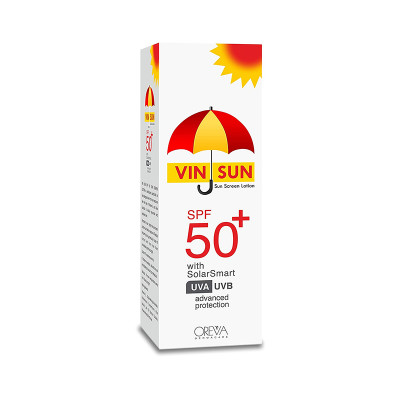
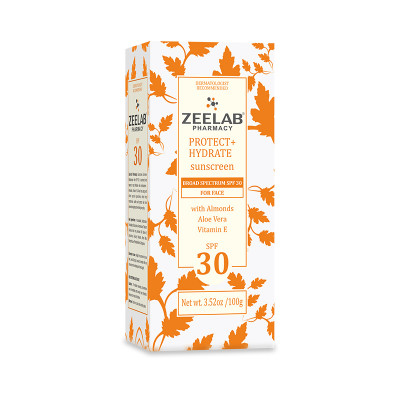
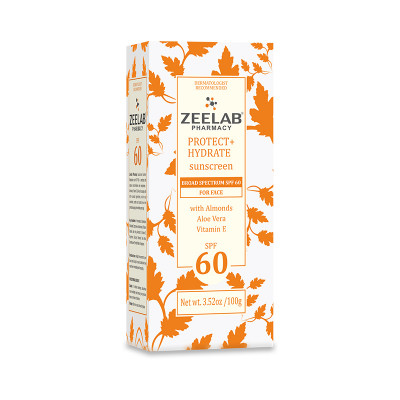
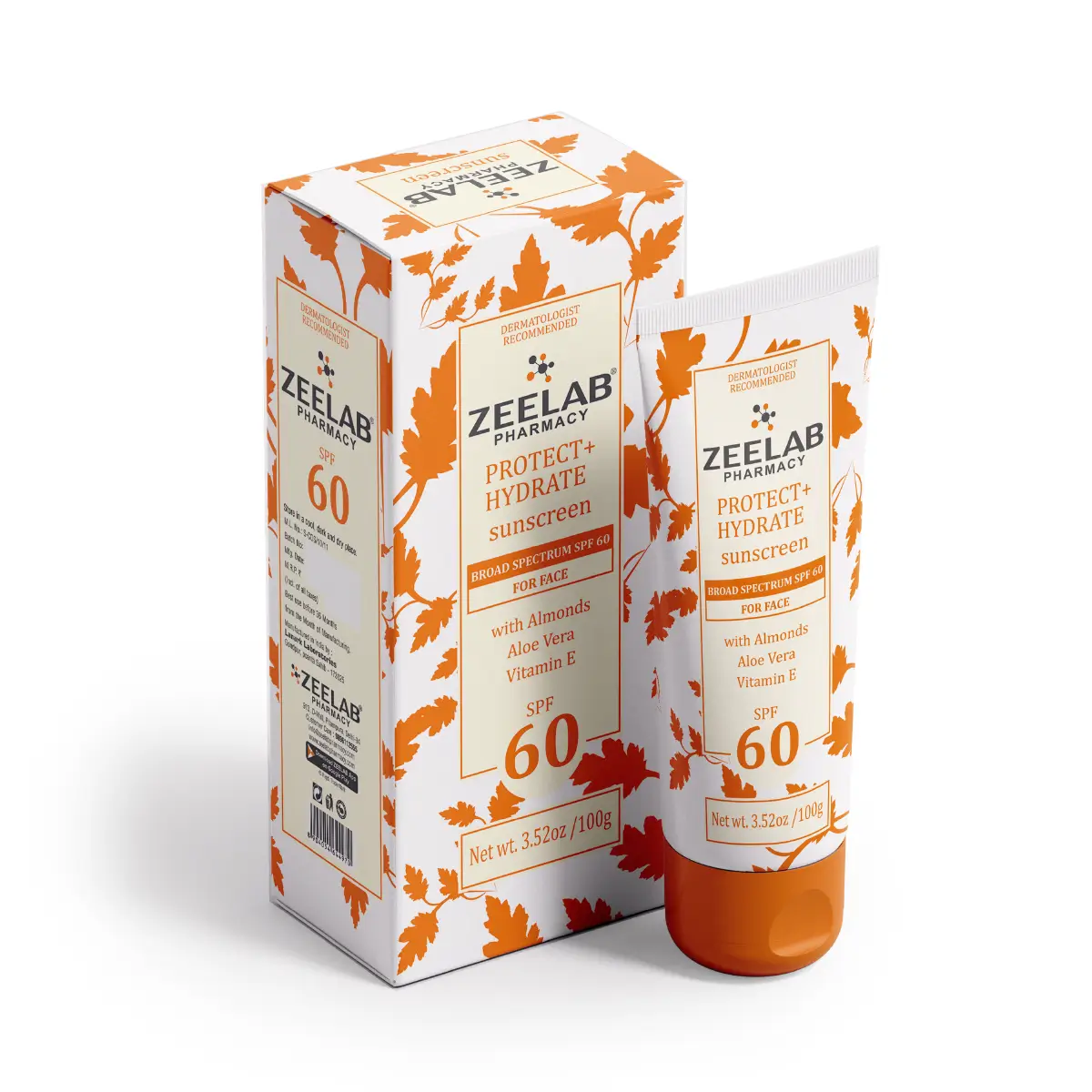
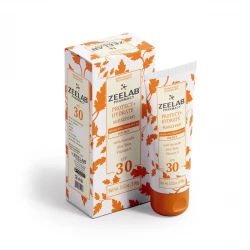
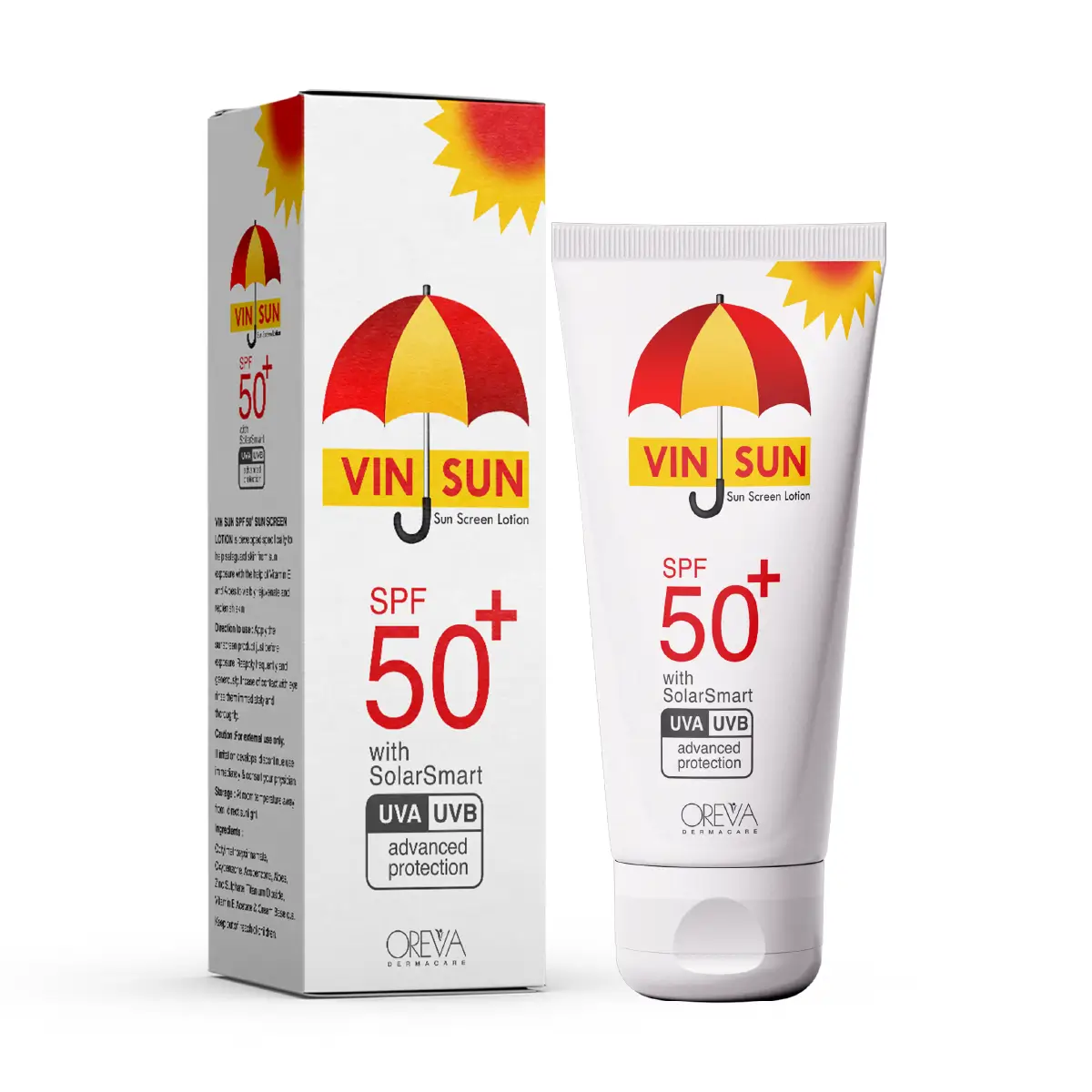
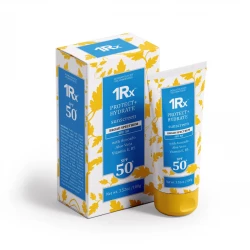



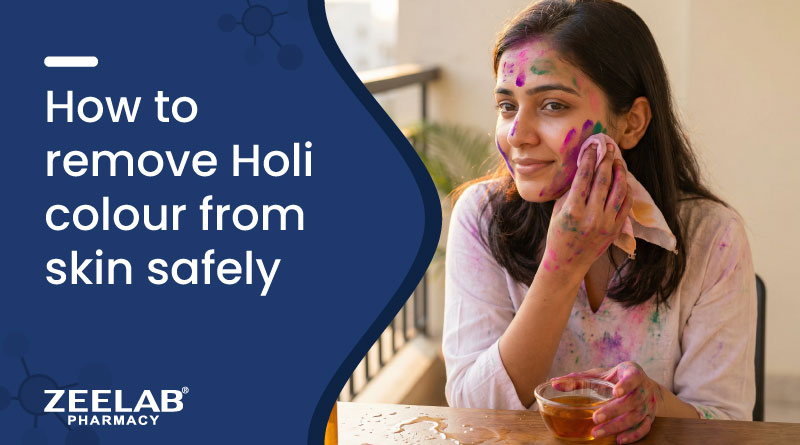











 Added!
Added!